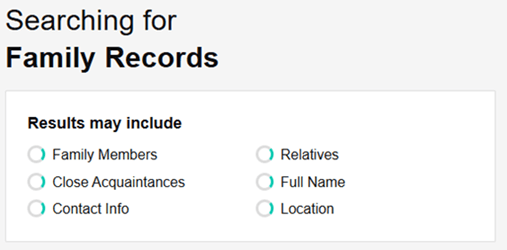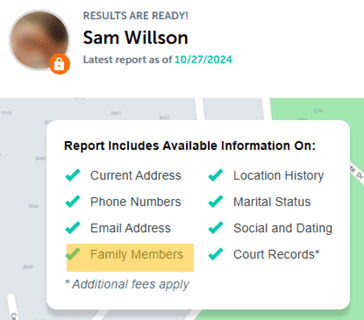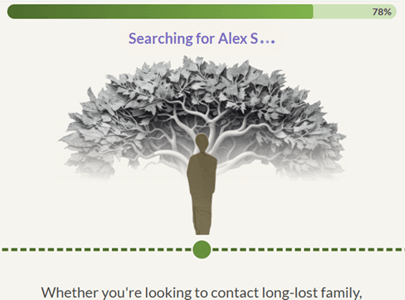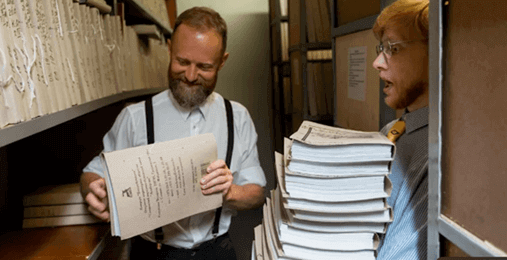How to Find Your Biological (Birth) Parents: 10 Methods
Instantly Search for Biological Parents!
Searching for your roots can be a deeply personal and emotional journey driven by a need for medical answers, cultural connection, or closure. But it’s not just about you – it’s also about respecting the boundaries and feelings of those involved. Hence, approach with sensitivity and care.
Spokeo is a people search engine that offering several features that can assist individuals in locating their birth parents. The platform aggregates public records and social media profiles, making it easier to find information. It provides potential matches, including names related and locations.
Emotional Preparation: Are You Ready to Find Your Birth Parents?
Finding your birth parents can be emotionally challenging. Ensure you’re prepared:
- Consider counseling to process potential outcomes
- Set realistic expectations (reunion, rejection, or uncertainty)
- Establish a support network (family, friends, or support groups)
- Reflect on motivations and goals
- Prepare for potential identity shifts
Emotional readiness will help you navigate the journey’s ups and downs. Take time to self-reflect and seek support before beginning your search.
Methods to Find Your Birth (Biological) Parents
Getting united with your birth parents can always be an emotional rollercoaster. Let me guide you through the best methods to find your birth parents.
Method 1: Find Birth Parents Using People Search Tools
1) Spokeo
I used Spokeo to help my friend locate their birth parents. The platform aggregates public records and social media profiles, making it easier to find information. After entering basic details, I discovered potential matches, including names related and locations.
The process was straightforward, but verifying the information required additional research. Hence, it took extra time to search for the information.
Step-by-step guide to finding your birth parents using Spokeo
Step 1) Visit the Spokeo website and input the name of your friend or their assumed birth parent’s name.
Step 2) Spokeo will conduct a reverse name search and access billions of records to extract information.
Step 3) Analyze the search results provided by Spokeo, which may include potential matches, contact information, related information, and public records. If necessary, verify the findings through additional research.
7-Days Trial for $0.95
2) BeenVerified
BeenVerified, a powerful people search tool, was the key to unlocking the secrets of my friend Alex’s past. I searched through combined public records and social network profiles to track down leads. When I typed in some basic info, I found possible matches that showed names, connections, and where people lived.
As he dialed the number, his heart racing with anticipation, I could sense his mix of emotions. Their phone call left them both in tears, finally filling that space in his heart. Meeting his birth family stirred up all kinds of feelings and tough moments, but in the end, he felt whole – like he’d found his missing piece.
Step-by-step guide I used to find Alex’s birth parents using BeenVerified:
Step 1) I used BeenVerified’s Family Tree search option to find Alex’s parental lineage. In the given space, I input Alex’s full name to see what the tool reveals.
Step 2) Once we identified a promising lead, I helped Alex verify the information using additional tools and resources.
7-Day Trial for $1
Method 2: Gather Information from Your Adoption Records
As I helped Alex on his journey to find his birth parents, we started by obtaining his adoption records, which held the key to unlocking his past. I reached out to his adoption agency for basic background details – anything they could share about his birth parents’ story, medical history, and why they chose adoption.
However, we were aware that this search could come with challenges: limited access, sealed records, inaccurate or missing information, and the emotional distress of uncovering painful truths.
Method 3: Utilize DNA Testing Services
To help Alex find his birth parents, we considered using DNA testing services like AncestryDNA or 23andMe, which analyze genetic material and connect users with potential relatives. However, we were aware of the potential drawbacks: false positives or negatives, invasion of privacy, security breaches, costly and inaccurate results, and unsettling unexpected discoveries. Even though we knew what could go wrong, our hearts pushed us forward – hoping just one match might lead us to his birth family.
Through the DNA test, we found his second cousin – our first real lead. That connection led straight to Alex’s birth mom and her family. For the first time, Alex could touch the missing pieces of his story.
Method 4: Search Online Databases and Registries
We explored online databases like Adoption.com and ReunionRegistry.com, where Alex could register his info to connect with biological family members.
However, we were cautious of potential drawbacks: outdated info, scams, public exposure, and limited success rates. Despite these risks, we hoped to find a match and bring him closer to his roots.
Method 5: Hire a Private Investigator
Hiring a private investigator specializing in adoption searches can be beneficial if you’re struggling to locate your birth parents. They can easily access exclusive resources and databases.
However, consider the potential drawbacks: expensive services, invasion of privacy, and unreliable/unlicensed investigators. Additionally, prolonged searches can cause emotional stress. You should also focus on the pros and cons before making a decision.
Method 6: Join Support Groups or Forums
Joining adoption support groups or online forums can help people receive emotional support and practical advice from those with similar experiences. Members share tips on finding birth parents.
However, be cautious of potential drawbacks: emotional overwhelm, misinformation, scams, and exploitation. Be prepared for time-consuming connections that may not yield results, and prioritize your emotional well-being.
Method 7: Contact State Vital Records Offices
Contact the state vital records office where you were born for potential access to your original birth certificate or other documents that could lead to your birth parents. Some states allow access under certain conditions.
However, you’ll likely face a slow and frustrating process with some roadblocks along the way. There can be slow responses, falsified data, or missing documents.
Method 8: Use Social Media Platforms
Social media platforms like Facebook and Instagram can help you reconnect with family members by searching for names or locations. You can also join adoption reunion groups to post inquiries.
However, be cautious of potential downsides: false information, privacy concerns, emotional distress, online harassment, scams, information overload, and public exposure risks. Approach online searches with care and caution.
Method 9: Network Through Family Members
Reach out to known relatives, like adoptive siblings or cousins, for help finding your birth parents. They may have valuable insights or connections.
However, there can also be potential challenges, such as emotional discomfort, reluctant or uncooperative relatives, family conflicts, or incomplete/inaccurate information. Approach the conversation with sensitivity and be mindful of potential outcomes.
Method 10: Conduct a Subject Access Request
File a subject access request to access your data and request adoption records from authorities or agencies, potentially uncovering birth parent info, medical history, and adoption circumstances.
However, be prepared for a lengthy process, potential rejection or denial, and limited information disclosure. Emotional preparation is also key, as revelations can be distressing.
Understanding Adoption Laws and Regulations
Navigating adoption laws can be complex. Here’s what you need to know:
- Confidentiality laws: They vary by state, affecting record access.
- Open adoption records: Some states grant access to original birth certificates.
- Closed adoption records: Require court orders or consent.
- Access to non-identifying information: Available in most states.
- DNA testing: Not bound by adoption laws.
I would advise you to consult state-specific resources or an adoption attorney to understand the laws governing your birth state. Knowing these regulations will streamline your search and manage expectations.
Overcoming Common Challenges/Obstacles in Birth Parent Searches
When searching for your birth family, it’s essential to prepare for dealing with uncertainty and potential rejection. Respecting birth parent boundaries and privacy is crucial to avoid causing emotional distress.
Also, factor in the costs – think DNA testing, travel, and counseling – and be prepared for the emotional ups and downs of reconnecting with your birth family.
What to Expect After Finding Your Birth Parents
Reuniting with your birth parents can be life-changing. Prepare for emotional responses: euphoria, shock, relief, anxiety, or grief. Potential outcomes include reunion, rejection, or limited contact. Have a look at these key factors:
- Consider practical aspects: integrating new family dynamics, navigating boundaries, and updating personal and medical history.
- Seek support: counseling, therapy, or support groups. Prioritize self-care and emotional well-being.
- Ask essential questions: shared interests, relationship expectations, and conflict resolution.
Remember, reunion is a process, not a destination. You need to focus on proper communication and work on your patience and emotional awareness.
Building a Relationship with Your Birth Family
Connecting with your birth family can be tough. Start with honest conversations about how you’re feeling, what you’re hoping for, and what you’re comfortable with. And remember, trust takes time to build. Respect their comfort level with communication and meetings to establish a strong foundation.
You must establish a routine with regular phone calls, emails, or meetings. Accordingly, share personal experiences to foster connection through shared stories. As you navigate the relationship, address conflicts openly and consider seeking mediation if needed. Prioritize self-care to manage emotional overwhelm.
You must make efforts to get to know each other and respect each other’s differences. Don’t forget to mark the special moments—those little celebrations can bring you even closer together. Remember, every situation is unique, so be patient, flexible, and kind.
Inspiring Stories- Adoptees Who Found Their Birth Parents
Here are two real-world incidents that demonstrate the transformative power of reconnecting with birth families:
Story 1: Sarah Morand – Reunited After 30 Years
Sarah Morand, adopted at birth, searched for her birth parents for decades. In 2019, she used DNA testing and found her birth mother, Susan. They reunited in an emotional meeting, discovering shared interests and physical similarities. Sarah finally found closure and a new family connection.
Story 2: Steve Jobs – A Life-Changing Reunion
Steve Jobs, Apple co-founder, was adopted in 1955. In 1977, he reunited with his birth mother, Joanne Schieble, and biological sister, Mona Simpson. Although his birth father, Abdulfattah “John” Jandali, declined contact, Jobs’ reunion brought him a deeper understanding of his heritage and identity.
Conclusion
With determination and patience, people have found their birth families and uncovered their roots. You can also start by gathering clues, using online tools, and getting expert help when you need it. Just remember, every step you take will lead to bigger revelations.
Spokeo is a people search engine that offering several features that can assist individuals in locating their birth parents. The platform aggregates public records and social media profiles, making it easier to find information. It provides potential matches, including names related and locations.

















